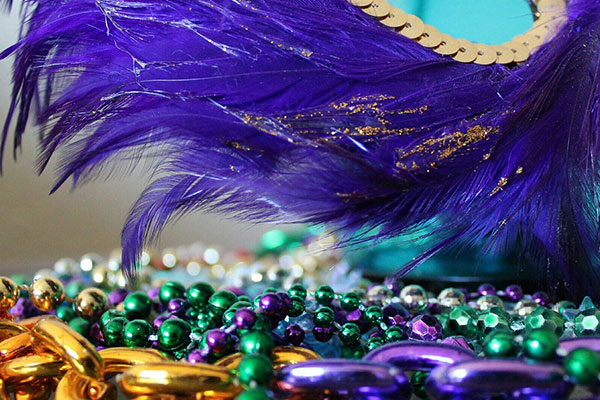
The History and Roots of Mardi Gras
- By Alison Lesley --
- 17 Feb 2015 --

Mardi Gras, or the Fat Tuesday as you may call it, is a series of carnival celebrations beginning after the King’s Day and day before Ash Wednesday.
Mardi Gras is rich in tradition, and few know where the celebration even began or why. It is considered the “last hurrah” before the start of Lent the following day, however it has evolved to mean so much more than that.
Even less known that the connection to lent, the holiday is deeply related to Christmas Season. Mardi Gras is known to many cultures as Carnival, from the Latin carne vale for “farewell to the flesh.” On the final day of Carnival, the French dine on a fattened calf. The day is known by many names, including Pancake Tuesday, Shrove Tuesday and fetter Dienstag.
Mardi Gras: The Beginning
Many people have their own ideas of where it began. Some feel it is a winter celebration to welcome Spring, others believe it represents the days added to the moon calendar to make it work with the solar one. It potentially has pagan roots, celebrating spring and fertility. In the middle of the 2nd century, the Romans celebrated before their Fast of 40 Days. They wore costumes, danced, feasted and enjoyed themselves in a way very similar to today’s Mardi Gras festivals.
Cultures that celebrate Carnival start their celebration off with Epiphany, which falls on January 6 and celebrates the Wise Men’s visit to baby Christ. During this celebration, one steadfast tradition is to serve King’s Cake. In the olden days, an item, usually a coin or bean, would be hidden in the cake. Whoever found the item would have good luck. Now, a small baby is placed in the cake and the receiver of the baby will host the next King Cake party.
Carnival celebrations are known in Europe, Latin America and the US. However, Mardi Gras wasn’t brought to America until 1699, when a French explorer discovered the Mississippi River near New Orleans. He christened the area Point du Mardi Gras because he knew back home they were celebrating.
Mardi Gras has Been Banned Before
In New Orleans, the French celebrated the day with masked balls and parties and merrymaking. However once the Spanish took over, it was banned. The ban was ongoing until 1827, when the festivities were resumed. Mardi Gras hasn’t just been banned. It has also been cancelled due to wars, national tragedies and other occurrences.



















